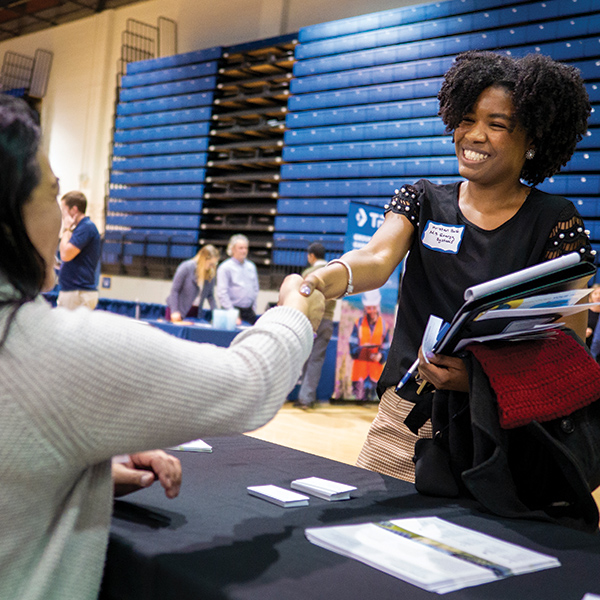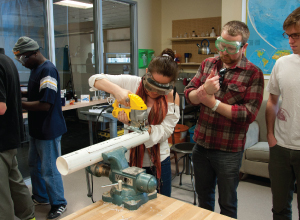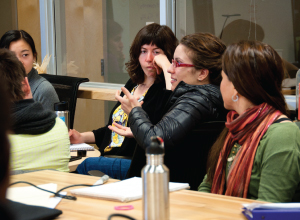- Home
- »
- Education
Education
Achieving an affordable and sustainable energy future requires a highly innovative workforce.
To keep pace with rapid changes in technology and market needs, we must create education and training programs that prepare students and professionals with the knowledge, skills, and training needed to advance the energy sector in a cost-effective and environmentally sustainable way. The EEI has developed one of the leading energy focused education programs in the nation.
Internships
If you are a student interested in energy and energy efficiency, please ask us about internship opportunities in our office. We often have internships available in a range of areas, including research, outreach, and project management. Internships are valuable opportunities to:
- Gain valuable work experience before you graduate;
- Develop new skills and refine others;
- Apply knowledge gained from coursework to on-the-job situations;
- Test out your career interests;
- Meet and work with professionals; and
- Establish contacts for letters of reference and networking.
Also, please visit the UC Davis Internship and Career Center where you can access Handshake, an online platform where UC Davis students can search for jobs and internships.

Project Based Learning

D-Lab
Founded in 2008, The UC Davis D-Lab works with international partners to find scalable, sustainable solutions for specific energy issues in their host communities. Faculty and graduate students from Engineering, International Agriculture Development, Community Development, Business, and Economics work together in teams in the lab and in the field. Using a bottom-up approach, D-Lab works with local communities to understand specific energy needs and assess the sustainability of proposed energy solutions through technical, social, environmental, and financial lenses. D-Lab focuses on innovative technologies and business models that can allow people at the “bottom of the pyramid” to save or earn more money. D-Lab is building expertise in water pumping and irrigation, post harvest drying and storage, off-grid lighting and micro power, and small-scale renewable energy such as solar and biogas.

Path to Zero Net Energy Initiative
The PZNE Initiative, in partnership with the UC Davis Energy Conservation Office, is a multi-disciplinary course to educate and engage students in issues of energy use, demand, energy efficiency, renewable energy and climate neutrality as well as their associated technical, economic, social and political challenges. Through lectures, field trips, and a hands-on project, students will understand the concepts behind zero net energy buildings and communities, and the associated climate and economic issues.
